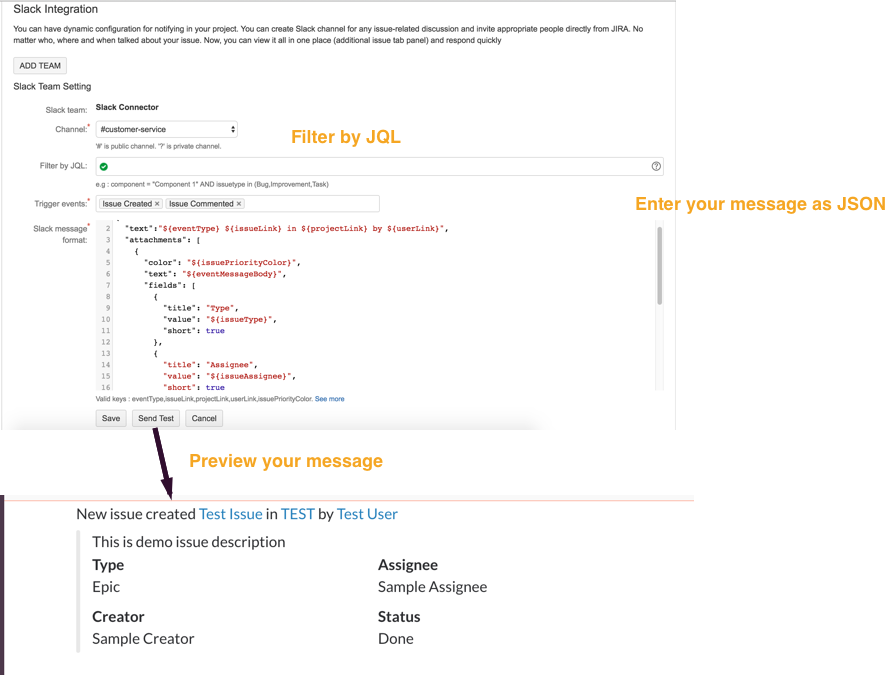Skip to end of metadata
Go to start of metadata
You are viewing an old version of this page. View the current version.
Compare with Current
View Page History
Version 1
Next »
{
"text":"${eventType} ${issueLink} in ${projectLink} by ${userLink}"
}
{
"text":"${eventType} ${issueLink} in ${projectLink} by ${userLink}",
"attachments": [
{
"color": "#205081",
"text": "${eventMessageBody}",
"fields": [
{
"title": "Type",
"value": "${issueType}",
"short": true
},
{
"title": "Assignee",
"value": "${issueAssignee}",
"short": true
},
{
"title": "Creator",
"value": "${issueCreator}",
"short": true
}
]
}
]
}
| Key | Description | Example data |
|---|
| ${eventType} |
| E.g : "New issue created" |
${issueLink} | It uses issue summary for displaying |
|
${issueKeyLink} | It uses issue key for displaying |
|
| ${issueKey} | This is issue key | e.g : TEST-1 |
| ${issueSummary} | This is issue summary | e.g : Cannot find attachment |
${projectLink} | This is project link |
|
${userLink} | It is action user on issue |
|
${eventMessageBody} | issue description or comment |
|
${issueAttachments} | number of attachments in issue |
|
${issueAssignee} | current assignee |
|
${issueCreator} | issue creator |
|
${issueResolution} | Fixed, Won't Fix ... . You can define resolution data in JIRA |
|
${issueResolutionDate} |
|
|
${issueDueDate} |
|
|
${issueStatus} | "Done,Open" |
|
${issueLabels} | "Bug,Improvement,Feedbacks" |
|
${issueType} | e.g : Task, Story, Epic, Subtask |
|
